Day 15
A meal for a person rescued at sea in the Mediterranean
 Solidarity on the High Seas
Solidarity on the High Seas
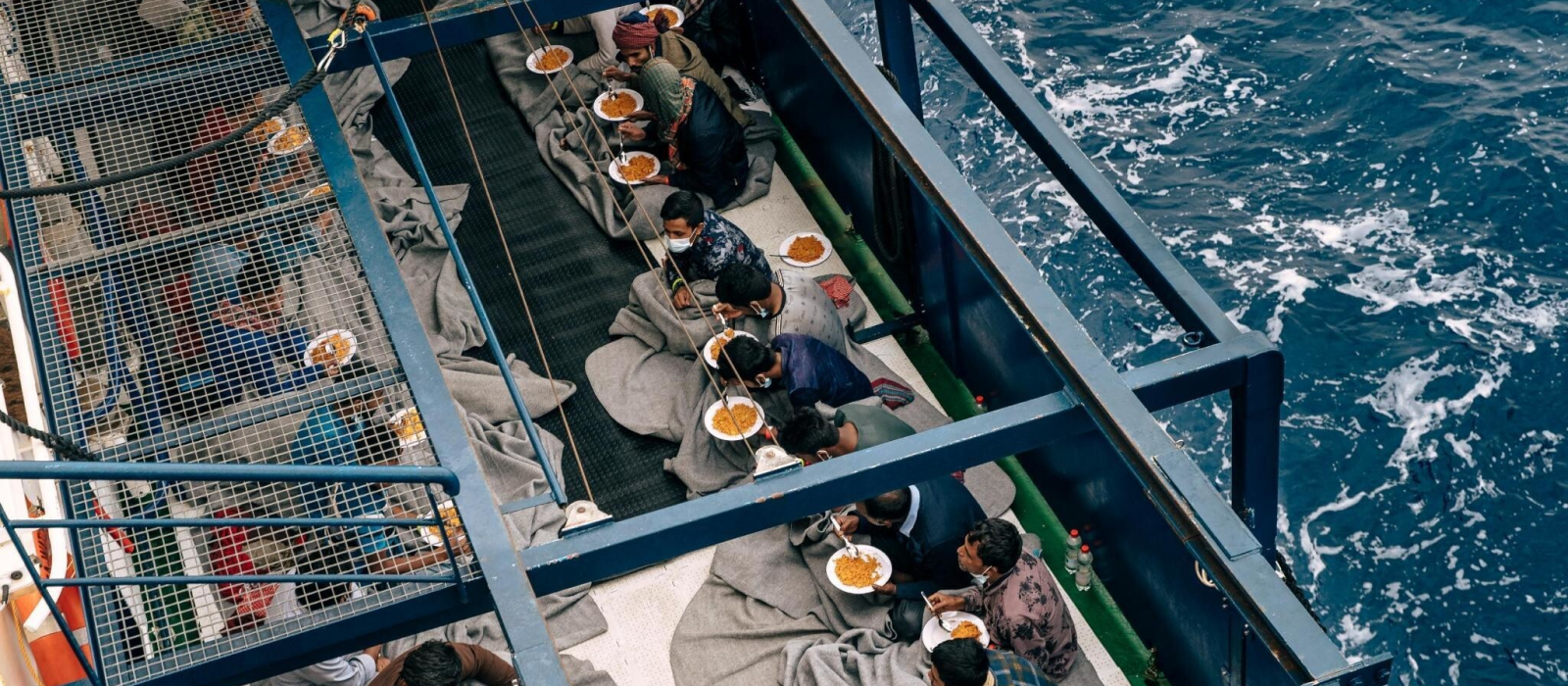

A meal brings security and a first breather


Lea Hoppenworth stellt dir das Projekt hinter Türchen 15 näher vor
need
Food for people rescued from distress at sea fleeing across the Mediterranean
activity
The crew of the rescue ships provides rescued people with nutritious meals and drinks and takes care of the well-being of everyone on board
Measurable performance
The number of food packages that can be distributed on board the rescue ships to persons rescued from distress at sea
Result
All people rescued from distress at sea are immediately cared for, their well-being is supported during the short time on board and they are brought safely to land
Systemically relevant impact
Civilian sea rescue contributes to long-term safety on the Mediterranean route
background
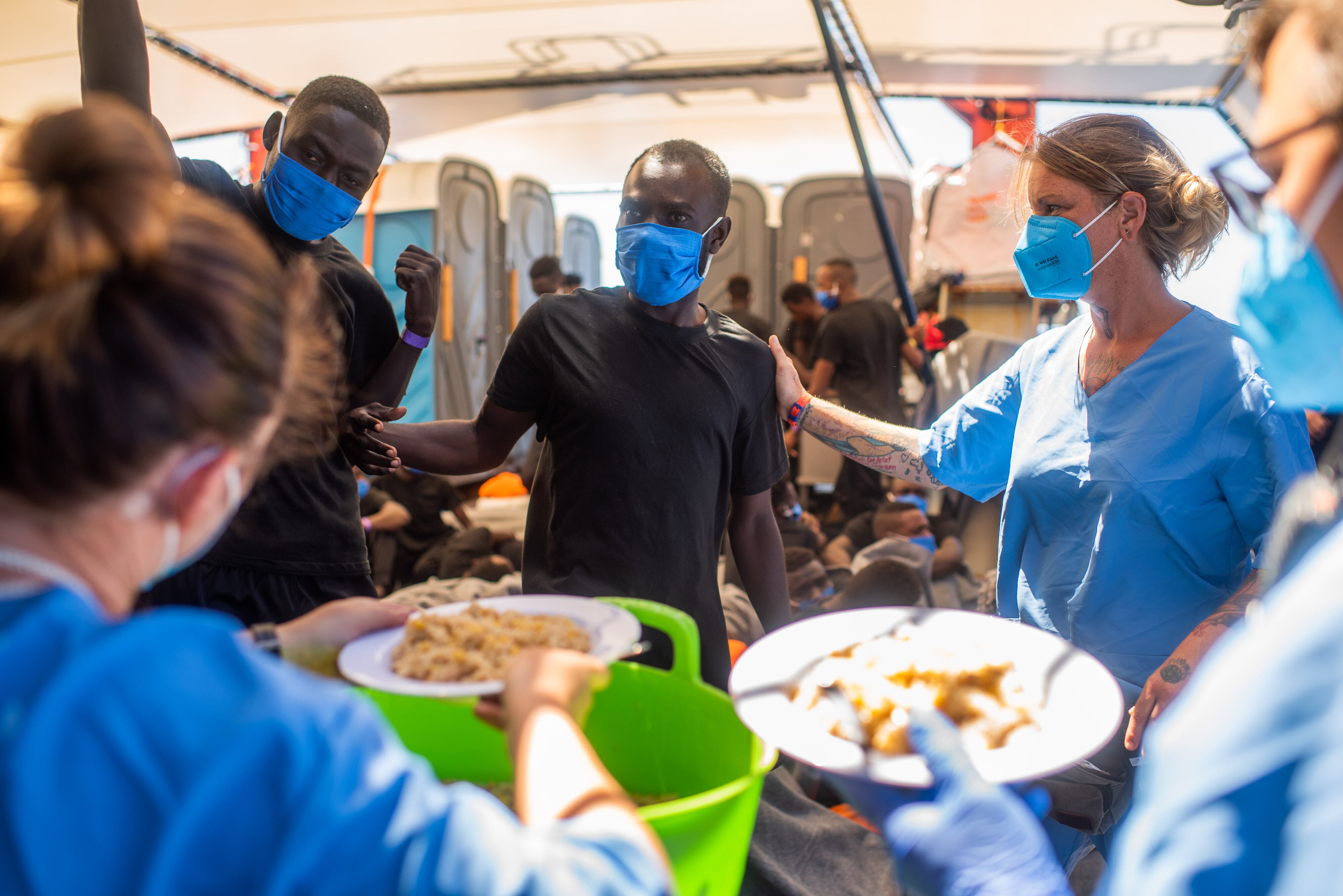
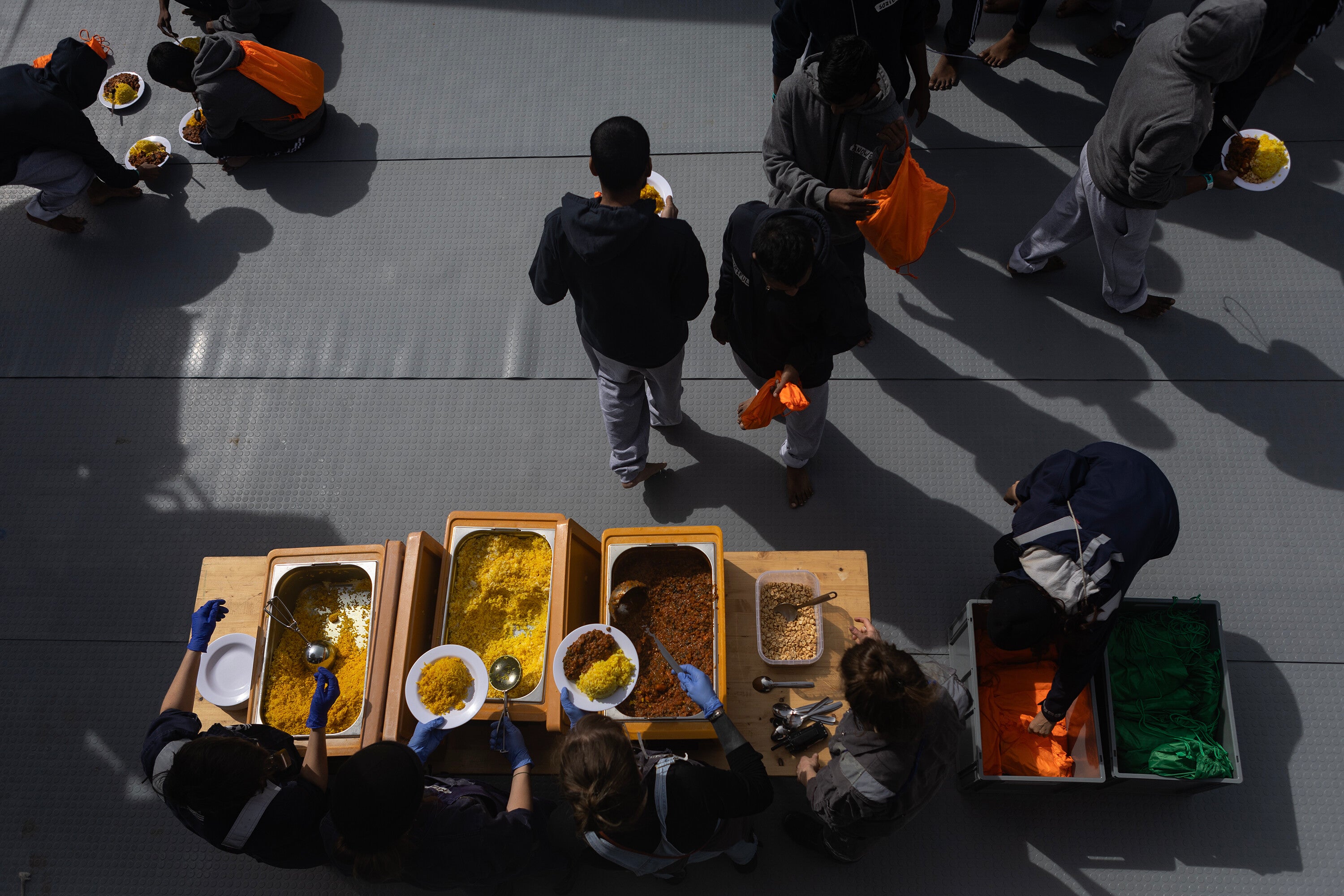
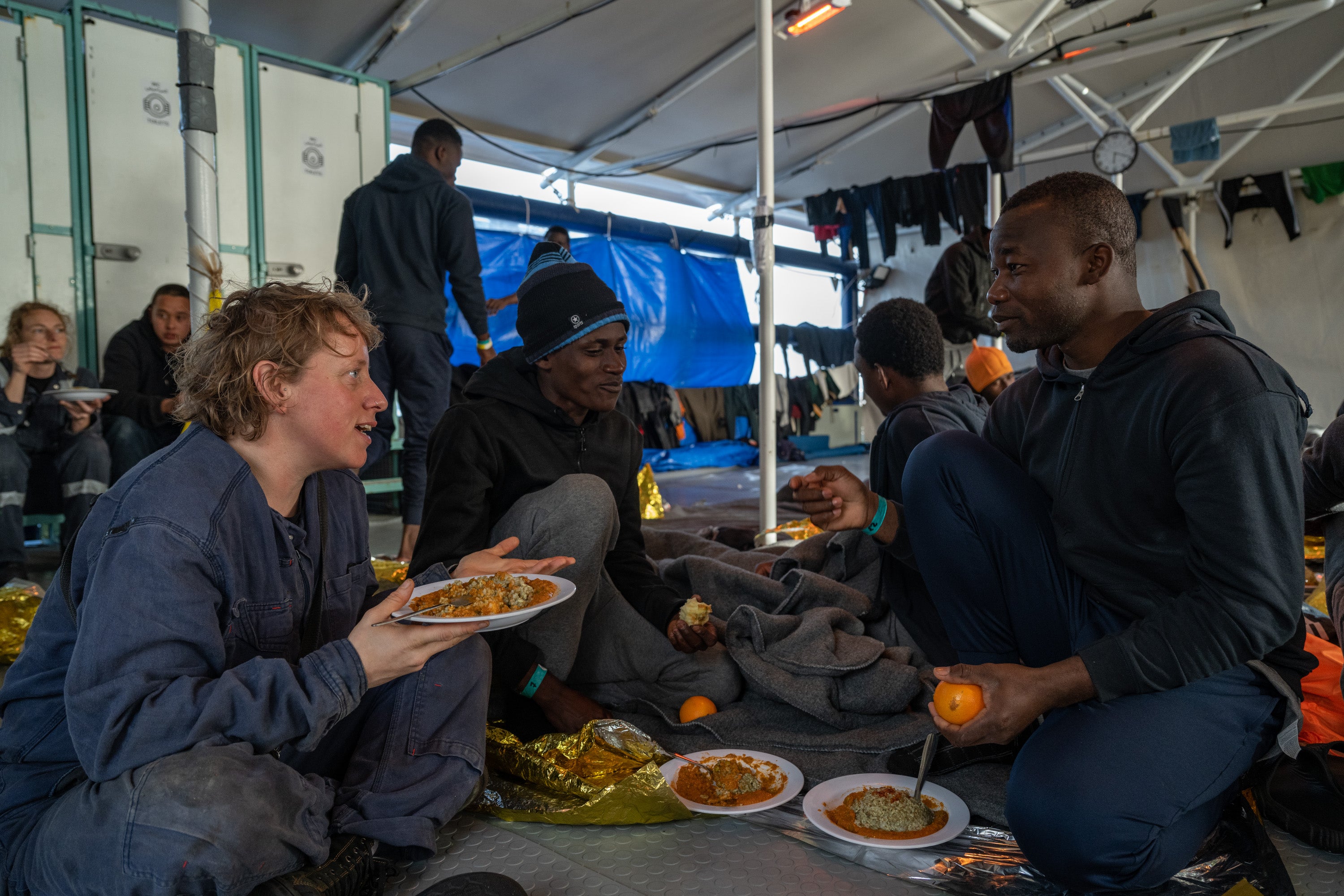
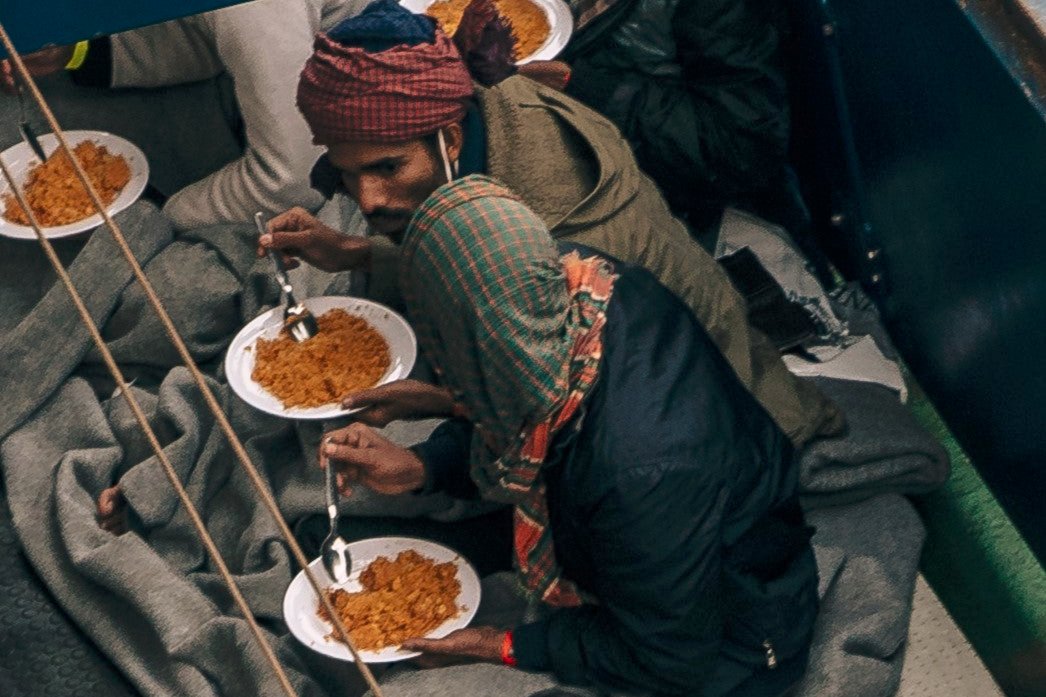
The good deed
About the European Mediterranean
n/a
Capital city
n/a
population
as of 2023
n/a
Gross domestic product
per capita per year in USD
as of 2023
n/a
Human Development Index
(Human Development Index)
as of 2023/2024



